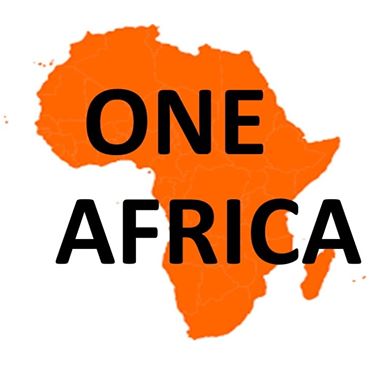Africa Health Policy

Dr. Anastasia Ashi
President
African Scholars Health Organization
Keeping Africans Health Naturally,
One Country At A Time
Summary Health Policy



The United Nation’s retrospective Millennium Development Goals (MDGs), and the current Sustainable Development Goals (SDGs), advocate sustainable development with special focus on poverty, health, education and the environment. The set of eight MDGs, comprising 21 targets and 60 indicators, were meant to enable effective tracking and monitoring of the progress towards the commitments by the United Nations countries, between 1990 and 2015, when the goals were expected to be met (UNICEF, 2018). The countries were mandated to formulate their homegrown strategies to help them actualize the MDGs. Globally, considerable progress is made towards achieving sustainable development in all sectors, but 91% of African countries are still not on track to achieve the health related MDGs even after the time target of 2015 (United Nations, 2014). According to Kirigia, Ota, Motari, Bataringaya & Mouhouelo (2015), there is also a low probability of achieving the post-2015 Sustainable Development Goals in Africa.This disproportionate progress in Africa contributes to the high risk of vulnerable populations dying from communicable and non-communicable diseases, compared to people in Europe. In order to achieve progress and be at par with other member countries of the UN, Africa must be able to put in place strategies to address the challenges facing the health sector. Unfortunately, the World Health Organization has failed to get to grips with the problem.
Africa is constantly plagued by heavy disease burden. Research has shown that Africa accounts for 31% of the global disease burden. The major health issues confronting Africa include HIV/AIDS, lower respiratory infections, Malaria, diarrhoeal diseases, cerebrovascular disease, ischaemic heart disease, tuberculosis, low birth weight, birth asphyxia and birth trauma. Kirigia et al. (2015) found that the African region lost up to 660,471,911 disability-adjusted life years (DALYs) in 2012, as a result of these diseases. Regrettably, the health systems are debilitated, and cannot efficiently and equitably deliver interventions to vulnerable populations, when and where needed. Consequently, there are tremendous repercussions of the socioeconomic development.
According to Kiriga & Barry, (2008), health policy makers such as the World Health Organization and the government know the necessary actions that need to be implemented to strengthen the weak health systems. On the other hand, there are challenges related to leadership and governance, health workforce, medical products, vaccines, technologies, financing, and services delivery.
RECOMMENDATIONS
In order to strengthen the weak health systems, efficiently and equitably deliver public health interventions to those who need them in Africa, there is need for a homegrown body that understands the system and can take the bull by the horn. The emergence of the African Health Organization is therefore timely, as it will effectively complement the efforts of the World Health Organization to Afrocentrically address the myriads of problems that form barriers to strengthening the weak health systems in Africa. The following constitute core of AHO direction:
- African preventive health must be emphasized through the promotion of native remedies known all over rural Africa.
- Health Research is critical to generate new knowledge for the improvement of health and health equity.
- Universities across Africa must engage in continuous data collection on all aspects of African health.
- African countries must urgently establish National Health Research Systems (NHRS).
- Dependence on international aid in health delivery must be discontinued.
- Countries that already have the NHRS must improve the functionality and efficiency to enable governments effectively implement requisite leadership and governance of their country’s NHRS.
- All medical practitioners across Africa must subscribe to African Health by associating themselves with African Health Organization.
- Countries must create an enabling environment for health research (Kiriga et al., 2015).
- Universities across Africa must source and compile all documentation of herbs, roots, shrubs, barks, balms for which Africa is known, and circulate such materials across medical centers across Africa.
- Countries should adopt the 2014 Luanda Commitment on Universal Health Coverage in Africa, to bridge the existing gaps in the health systems and improve access to health interventions related to Sustainable Development Goals (Sambo & Kirigia, 2014).
- Medical practitioners, pharmacists, and other healthcare functionaries in all disciplines must be engaged, and are free to contact African health Organization to chart their engagement path in their respective countries.
- African countries must invest in outbreak preparedness to respond to disease out breaks (Olumade, Adesanya, Fred-Akintunwa, Babalola, ……… & Osasona, 2020).
- African countries must establish trans-border collaborations to increase surveillance of migrant populations for the prevention of transmission of infectious diseases across borders.
- Attention should focus on proper outbreak preparedness and coordination of responses.
- Countries must take pre-emptive steps between outbreaks, and develop protocols to guide post-epidemic actions.
- Countries must put in place plans to strengthen Health Security
- Medical and ancillary/auxiliary healthcare agencies must immediately embark on continuous free education and orientation on African health practices until the entire African continent return to its ancestral health and healing practices.
- All individuals or entities are encouraged to desist from taking undue advantage of the less informed. African peoples should be able to rely on their fellow Africans for the delivery of quality scam-free healthcare.
- Countries are encouraged to make local policies in support of the above tenets.
Long Live African Health Organization!
Long Live Africa!!
References
Kirigia, J. M., & Barry, S. P. (2008). Health challenges in Africa and the way forward. International archives of medicine, 1(1), 27. doi:10.1186/1755-7682-1-27
Sambo, L. G., & Kirigia, J. M. (2014). Investing in health systems for universal health coverage in Africa. BMC international health and human rights, 14, 28. doi:10.1186/s12914-014-0028-5
Kirigia, J. M., Ota, M. O., Motari, M., Bataringaya, J. E., & Mouhouelo, P. (2015). National health research systems in the WHO African Region: current status and the way forward. Health research policy and systems, 13, 61. doi:10.1186/s12961-015-0054-3
Olumade, T. J., Adesanya, O. A., Fred-Akintunwa, I. J., Babalola, D. O., Oguzie, J. U., Ogunsanya, O. A., George, U. E., Akin-Ajani, O. D., & Osasona, D. G. (2020). Infectious disease outbreak preparedness and response in Nigeria: history, limitations and recommendations for global health policy and practice. AIMS public health, 7(4), 736–757. doi:10.3934/publichealth.2020057
United Nations . Report of the open working group of the General Assembly on sustainable development goals. New York: UN: Document: A/68/970; 2014. [Google Scholar]
[Download]